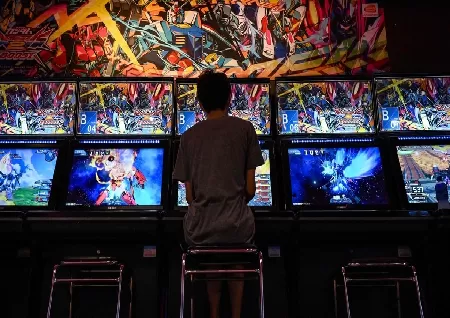All bets are off on Japans sports gambling craze

On Japanese sports, all bets are off. gambling mania Screen-focused activities become less appealing as the nation begins to recover from the epidemic. Kyoko recently made history by winning the top award in a usually masculine sport. A morose former champion plans to bring about change by developing a former player and a fop. But the race against a finishing school coquette and a stoic cat lover will be where the men will find their match. We're excited to introduce you to season two of "I Am a Boat Racer," a protracted soap-opera-style marketing campaign for Japanese powerboat racing. The campaign's first season was a huge hit during the epidemic and gave rise to a new generation of boat-obsessed gamblers. Can the 2023 campaign, however, perform the same miracle? a country that could be poised to unmask at last? While the drama in "I Am a Boat Racer" is fictional, it is set in the very real world of a sport that is just one of a very small number that is permitted to be bet on in Japan, along with horseracing, car racing, and Keirin cycling. Over the past three years, all four sports have prospered to an amazing extent in terms of betting income and the number of bettors, mostly through internet portals. Some observers explain the rise as the result of the pandemic-induced, ubiquitous (but potentially transient), entertainment-hungry "nesting" dynamics that Japanese families adopted.
Some believe that the boat race campaign, along with less interesting events like horse racing and cycling, may have flipped a more long-lasting switch.on the nation's stance on gaming. Indicators of tertiary sector activity published by the ministry of economy, commerce, and industry show that wagering on motorbikes, boats, and horses began to rise gradually but moderately in 2013 and then sharply when the pandemic started. Since March 2020, the index that includes all four sports has increased by little over 60%. Over the same time span, the boat racing-specific index alone has increased by 134%. This growth jumps out in statistics for industries where shrinkage is typical—laterally because of COVID, but fundamentally because of Japan's ageing and declining population. In a survey released by Tokyo Shoko Research in May of last year, which examined the performance of seven boat racing organisations nationally, it was discovered that their combined revenues increased by more than 50% from the September to October 2018–19 time frame to its equal in 2020–21.
However, the development of user-friendly, low-stakes gambling applications and software that make it possible to continuously watch races in high definition on a phone has been a crucial role in all sorts of Japanese sports betting. An early adopter of this was the horse racing business. Even before COVID, one of the most popular applications combined footage from many tracks around the nation to create a scenario in which the Japanese workforce could covertly put a 100 minimum wager on an impending race at any time during the working day. This has been imitated by the boat racing business, but with far more interesting advertisements. Both sectors exhibit a wider change in the consumption of entertainment has changed due to more eyeball competition and shorter attention spans. The vertical pinball game Pachinko has long been Japan's unofficial gambling king.
Fewer and fewer Japanese are willing to commit the time necessary to earn a substantial payoff, which explains why the game's 2020 revenues were just around half what they were in 2006 ($207bn). Live crowds for horse and boat racing had been declining for years. However, a three-minute adrenaline-pumping extravaganza that was seen on the phone during the occasional coffee break was a very different matter. That coffee break was basically made permanent by working from home and "nesting." What occurs next, though? Japan did not respond to the epidemic in the way that was expected. some had predicted.
The majority of the tertiary index of services covered by METI, including bars, restaurants, and much everything else, are ostensibly back to normal. It appears that despite the removal of limitations, some have chosen to remain. However, one explanation holds that the government's ongoing advice that individuals wear masks indoors has had a significant impact, acting as a light burden that prevents them from fully engaging in their prior interests. On Friday, Prime Minister Fumio Kishida paved the ground for the removal of the mask proposal this spring. Although many Japanese people will continue to wear them, there may be a swift subconscious change. Whether betting will continue is the big bet for the boat racing business and its A-list marketing campaign.
Related queries to this article
- Japanese sports
- gambling
- powerboat racing
- horse racing
- boat racing
- Fumio Kishida
Read more articles and stories on InstaSity Trending Topics.